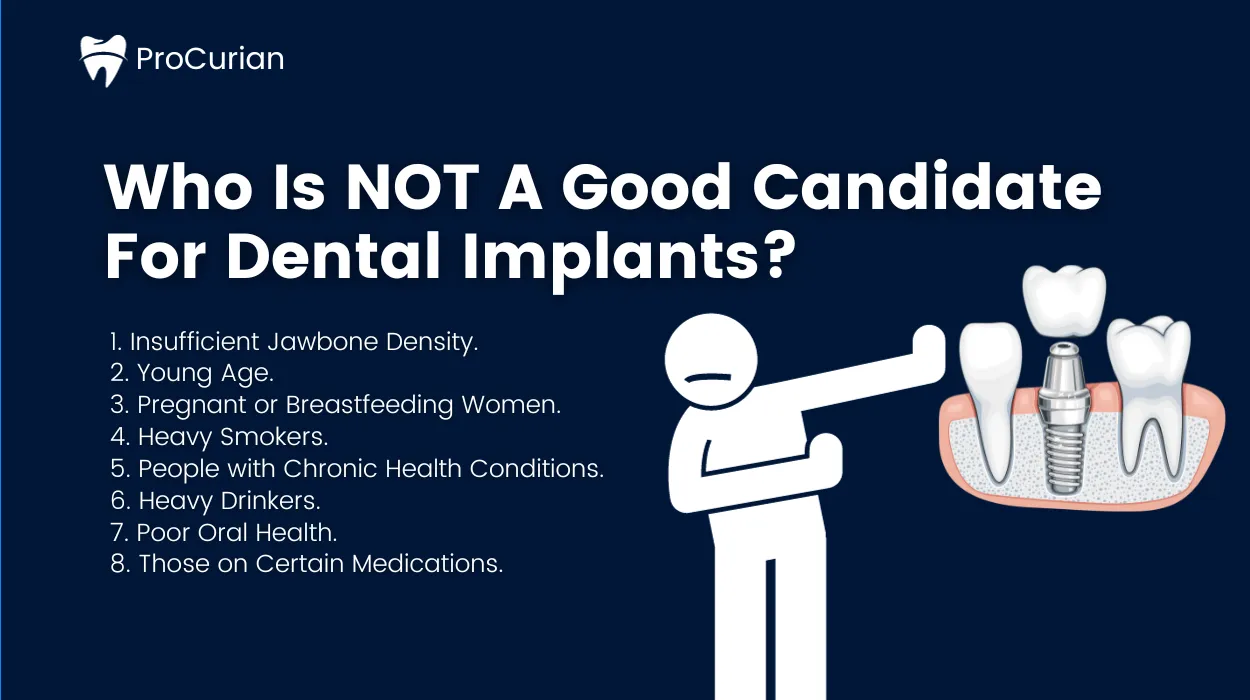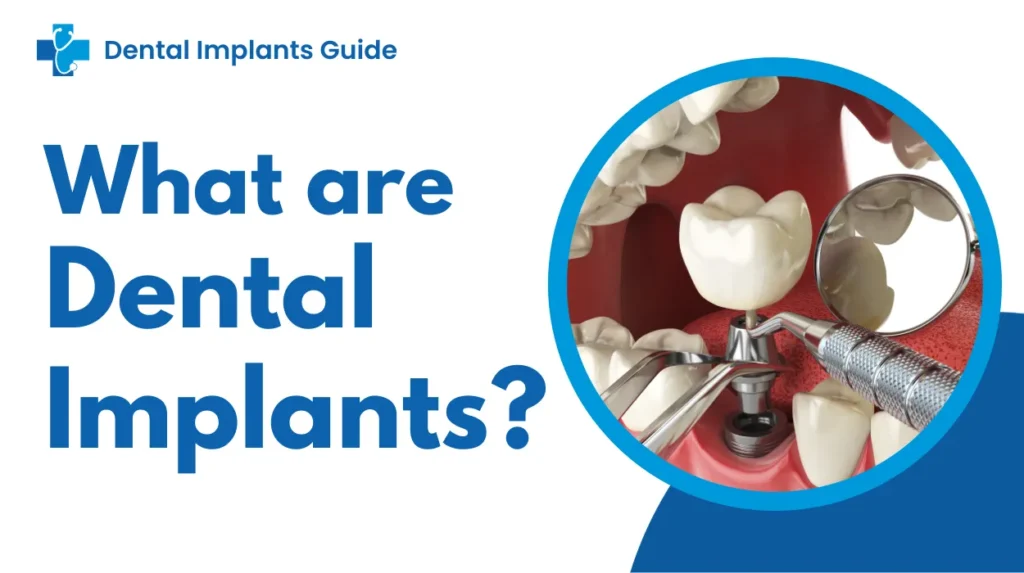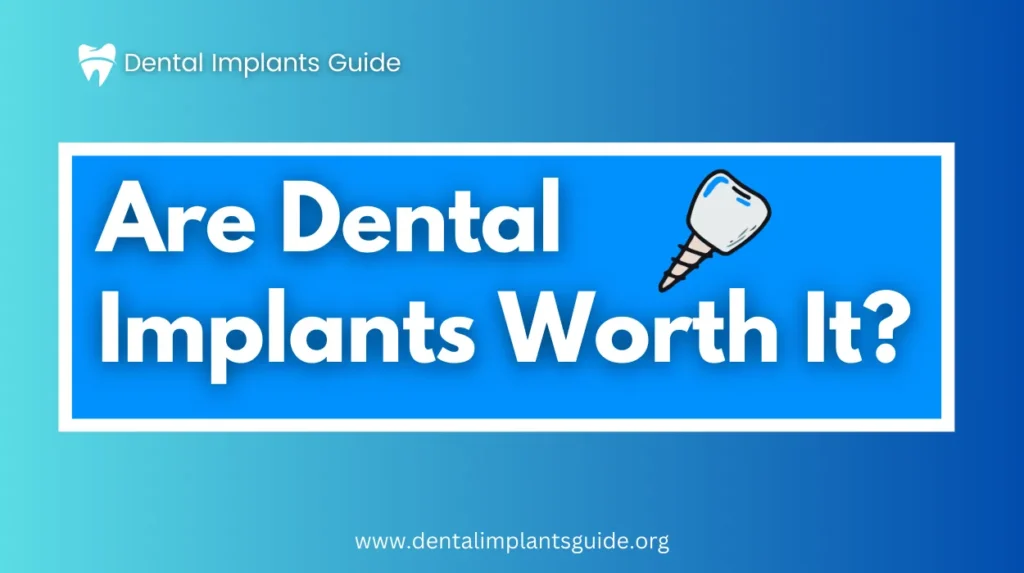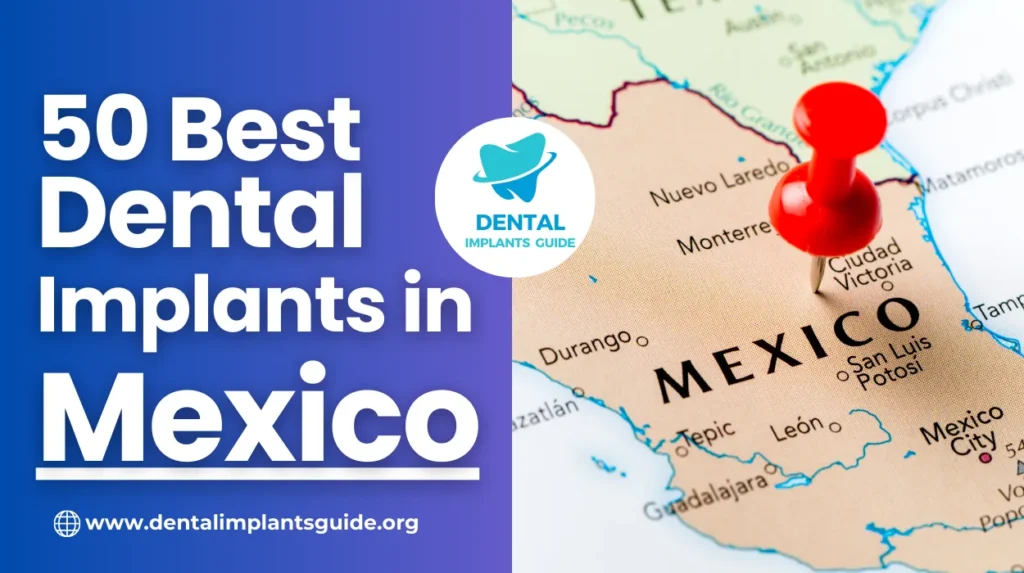
Hello everyone! If you’re considering dental implants, you probably want to know if you are a good candidate. Although dental implants can change your life, not everyone is a good candidate.
In this article, we’ll go over who might not be a good candidate for dental implants so you can make an informed decision about your oral health. then let’s get going!
Dental implants are like artificial tooth roots made from strong materials like titanium. They are placed into your jawbone and serve as a foundation for replacement teeth, like crowns, bridges, or dentures.
They consist of three main parts:
- The implant – A tiny screw placed in your jawbone.
- The abutment – A connector piece.
- The crown – The tooth-like part that’s visible in your mouth.
The most commom types of dental implants are: Endosteal and Subperiosteal, All-on-4 implants & Mini implants.
Who is NOT a Good Candidate for Dental Implants?
While dental implants work for many people, there are situations where they may not be a good candidate:
1. Insufficient Jawbone Density
The dental implant needs a strong and healthy foundation to fuse with the bone properly. If your jawbone lacks the necessary density or has deteriorated significantly, you may not be an ideal candidate for dental implants.
Causes of Insufficient Jawbone Density
- Tooth Loss – When a tooth is lost or extracted, the jawbone in that area can begin to shrink over time due to lack of stimulation.
- Gum Disease – Advanced gum disease (periodontitis) can lead to bone loss in the jaw.
- Aging – Natural aging processes can cause a reduction in jawbone density.
2. Young Age
Age can play a role in determining your suitability for dental implants. While there isn’t a strict age limit, dental implants are typically not recommended for children and young teenagers whose jaws are still growing.
3. Pregnant or Breastfeeding Women
Pregnancy and breastfeeding are beautiful phases of life, but they come with some special considerations. It’s usually recommended to hold off on dental implant procedures during pregnancy and while breastfeeding. This is to ensure the safety of both the mother and the baby.
Note: If you’re unable to afford dental implant surgery, consider exploring options like dental implant grants. These programs may provide financial assistance or discounts to help cover the cost of the procedure. Even if you didn’t get approved for the grants, here are some insurance that covers Dental implants.
4. Heavy Smokers
Smoking is bad news for dental implants. It can slow down the healing process and increase the risk of complications. If you’re a heavy smoker, your dentist might advise you to quit or cut down significantly before considering dental implants.
5. People with Chronic Health Conditions
Certain health conditions can affect the success of dental implants. These conditions include:
- Diabetes – Poorly managed diabetes can hinder the healing process and increase the risk of infection.
- Heart Disease – If you have heart problems, your dentist will want to make sure the implant surgery is safe for you.
- Immune Disorders – Conditions that weaken your immune system might increase the risk of infection.
- Osteoporosis – Weakened bones can make it harder for implants to stay in place.
6. Heavy Drinkers
Just like smoking, excessive alcohol consumption can slow down the healing process and affect the success of dental implants. If you’re a heavy drinker, your dentist may advise you to cut back before getting implants.
7. Poor Oral Health
Having a healthy mouth is crucial for the success of dental implants. If you have active gum disease or untreated tooth decay, it’s essential to address these issues before considering implants. Dental implants require a clean and infection-free environment to thrive.
8. Those on Certain Medications
Some medications, like steroids or drugs that suppress the immune system, can affect the healing process and make dental implant surgery riskier. It’s crucial to discuss your medications with your dentist before considering implants.
So Who are the GOOD Candidates for dental implants?
Most people who are missing one or more teeth can be good candidates for dental implants. However, there are some criteria that make a person an ideal candidate:
- Good oral health.
- Adequate bone density and quality in the jaw.
- Non-smokers or willing to quit smoking.
- No uncontrolled health conditions.
- Realistic expectations about the procedure.
Alternative Options for Dental implants
If you’re not a suitable candidate for dental implants, don’t worry! There are alternative tooth replacement options available, such as:
- Dentures – Removable artificial teeth that can replace some or all of your missing teeth.
- Dental Bridges – These are fixed prosthetic teeth that are supported by adjacent natural teeth.
- Mini Dental Implants – Smaller implants that may be an option if you have insufficient bone density.
- Implant-Supported Dentures – A hybrid option combining dentures with dental implants for added stability.
FAQs
Who should avoid getting dental implants?
If you have weak or not enough jawbone, it might be best to avoid dental implants. Your jawbone needs to be strong to hold the implants in place.
Can people with gum problems get dental implants?
It’s tricky if you have gum issues. Healthy gums are super important for dental implants to work well. So, if your gums are not healthy, it’s better to fix that first.
Is it okay to smoke if I want dental implants?
Smoking can make it harder for dental implants to succeed. It’s a good idea to quit smoking or at least cut down if you’re considering implants.
Can kids and teens get dental implants?
Usually not. Dental implants are better for adults because kids and teens are still growing, and it can cause problems with their implants.
What about pregnant women? Can they get dental implants?
t’s best for pregnant women to wait until after childbirth. Pregnancy can affect how your body heals, so it’s safer to wait.
Final Words
Dental implants are a great option for many people who have missing teeth, but they might not be the best choice for everyone. Your age, bone density, lifestyle, and level of health all play a role in your ability to get dental implants.
If you’re considering getting dental implants, you should speak to a qualified dentist or oral surgeon. To decide the best course of action for your smile, they will assess your particular situation and consult with you.
Remember that there are other tooth replacement options if dental implants are not the best choice for you. Your dental health professional will work with you to identify the best option for restoring your smile and oral health.









